Maybe it’s just me.
But I keep running into the same conversations around career crisis, purpose, and transitions. Several times a week, I’ll meet up for lunch, sink into a DM, or sift through a Telegram chat, and a friend will confide that they’re experiencing a tough time. When I comfort them, they are surprised that they’re not the only ones struggling with finances, that other industries aren’t immune to existential threats. They sigh relief when they realize that most everyone I know is confronted with formidable questions of their lives and futures.
It’s astonishing that we still don’t appreciate how interconnected we all are, especially when it comes to economy and social climate. Social media should be honestly depicting our universal condition, but we wrestle with these challenges in isolation, unaware that we’re all in a dark room together. Flip the lights on and we find that many of us are out of a job or getting edged out of one. Even if you have a gig, you may feel restless or unhappy. This is incredibly common. Although the politicians and media like to tell us that the economy is doing better, we are collectively feeling an illusory recession. The endless, catastrophic wars and political chaos don’t help. We are also living in a dynamic and volatile era of technological shifts and social attitudes. And still, we’re unearthing ourselves from the trauma of a global pandemic! It’s okay to be confused and grasping for the stability and certainty of what once was.
I’m in the same boat. Fashion is not the same. Consumers have had their fill and their pockets have been emptied. This year, “Pressure on household incomes is expected to dampen demand for apparel and prompt trading down across categories.” Nike and Supreme were the hinges that anchored streetwear’s door. Now, both are unfastened. The marketplace continues to splinter and fragment, divvied up between drops and TikTok trends. There used to be $500 Million brands. Now there are 500 million-dollar brands. While The Hundreds continues its legacy, we’re pushing ourselves to be even more creative and resourceful as opportunities thin. At this point, the game seems to be “Who can hold on the longest?” with players silently dropping out of the race every day.
Tech, fashion, real estate, no one is safe. The entertainment industry is also embattled, but there are silver linings. FX’s “The Bear” premiered its third season. The television show’s garnered critical acclaim and audience applause for Jeremy Allen White’s and Ayo Edebiri’s performances. Creator Chris Storer’s loud style and frenetic pace are as distinct as The Bear’s beloved soundtrack. But what really seems to be registering with the zeitgeist is the story about an impassioned chef fighting tooth and nail to open a restaurant.1
[SPOILER ALERT: These next paragraphs contain spoilers for “Napkins,” the sixth episode of “The Bear” Season 3.]
One of the most popular episodes of this series is “Napkins,” line cook Tina Marrero’s bottle story of how she got hired at the restaurant in the first place. Set a few years prior, Tina’s a hardworking woman of color who is trying to make ends meet. When she gets laid off from a secure career she’s held for 15 years, she’s sent into a tailspin. Tina attacks the job market with vigor, as she’s approached every obstacle in her life. She subjects herself to an onslaught of job interviews and is battered with rejections. Although we currently know her as a fiery and talented woman, we see her then as scared and spiritless.
Heartbroken and defeated, she finds sanctuary at The Beef (the restaurant in The Bear). She retreats to a table in the back room and collapses into their famous Italian beef sandwich. Her eyelids rest as the slow-cooked sirloin hits her lips, the sweet gravy and hot peppers marinating together in a sublime bite. Tina breaks down in tears.
In a series that’s known for its stressful energy, this is the rare interlude when we get to breathe. It’s in that moment where Tina takes pause -- where she surrenders to the universe – that The Beef’s manager pulls up a chair and capitalizes on her vulnerability with a friendly chat. It’s in that fleeting window where she is present in her life, in her space, in Chicago – with the sandwich in front of her and with another human trying to make sense of it all – that Tina is available to what the world has to offer. Her openness and clarity unlock the next chapter of her career in the restaurant. Today, she is the soul and engine of the kitchen.
“Recovering venture capitalist” Steve Schlafman has an entire newsletter dedicated to work-life transitions. Seven years ago, after making partner at his multi-billion-dollar firm, he realized he was unfulfilled. “Despite climbing to the top of the mountain, something was still missing deep inside me. Everything I worked so hard to achieve had finally arrived, but I felt no different.” He’s gone on to help others “discover and manifest their next calling.”
In “The Journey Through Lostness,” Schlafman shares his guide on embracing and navigating the “Wilderness in Life.” He not only normalizes the feeling of being lost, but he also writes that it is an enduring trait that can provide insight for meaning and direction. As our trail guide, Schafman advises us to pause and collect ourselves if we find ourselves lost in life’s woods. STAND STILL! “Notice your breathing, feel your feet on the ground, take in your surroundings, observe the objects in the room, and reflect on your inner state.”
“Such deliberate stillness and presence, though it may feel counterintuitive, is the bedrock of sound decision-making when we're lost or in transition. It disconnects us from the panic-driven cycle fueled by our sympathetic nervous system and reconnects us to our higher reasoning faculties. Ultimately, it equips us with the mental clarity needed for effective problem-solving and pathfinding, underscoring the profound strength found in calmness and patience. Slowing down not only reduces our stress response but also quiets our mind, helping us see the bigger picture and notice intuitions or insights that were obscured by stress.”
In The Second Mountain, David Brooks (the New York Times columnist and author) writes about how our life’s journeys are divided in two. Like Schlafman, Brooks settles on mountain and wilderness metaphors. He explains that we often get to the top of the first mountain before an upset in life leads us down into a valley. The second mountain is where we hunt for deeper meaning and purpose. If you find yourself trapped in that valley, Brooks encourages you to lean into it and venture out alone. “At the moment when you are most confused about what you should do with your life, the smartest bet is to do what millions of men and women have done through history. Pick yourself up and go out alone into the wilderness.”
Moving towards the peace and quiet of solitude makes us sensitive to our unattended wounds and pain. It allows us to take stock of our situations. Brooks quotes Henri Nouwen: “You have to be limited in your movements, sparing with phone calls, and careful in letter writing… The thought that you may have to live away from friends, busy work, newspapers, and exciting books no longer scares you… It is clear that something in you is dying and something is being born. You must remain attentive, calm, and obedient to your best intuitions.”
By shedding distractions, we awaken to what our lives are, rather than what we fantasize. This helps us open that door to the next job or stage. Brooks quotes Parker Palmer: “Vocation does not come from willfulness. It comes from listening. I must listen to my life and try to understand what it is truly about – quite apart from what I would like it to be about.”
I also have my own allegory. For the last twenty years, in building my company, I’ve imagined it as climbing a mountain. There have been fun and enjoyable turns and treacherous traverses, but I’ve never stopped, fueled by creativity, ego, and avarice. Honestly, most of the time, I haven’t had a clue as to where I’m going. I just keep marching up towards a peak that’s obscured by fog and clouds. You’d think that after a couple decades, I’d be closer to reaching the top, but I’m nowhere near the halfway point. That only motivates me to ascend harder and faster. The older I get, the more intent and obsessive I am to surmount the hill. I feel like I’m running out of time, bandwidth, and runway before night settles in and that’s led to a sense of panic and paralysis in how I’ve been piloting my career.
Over the last couple of years, a storm’s rolled in out of nowhere and forced me to set up camp. It’s been frustrating to slow things down due to circumstances beyond my control. I have so many creative ideas to fulfill; it’s impossible to keep them at bay like barking wolves. As I wait, the mountain peak looms larger than ever, hovering over me, taunting. I’m drowning in its oily shadow that seeps into my perforated attention span. When will the dark clouds break? When can I continue towards my dreams?
So much of my purpose and value stems from productivity. This may be inherited from my parents’ immigrant work ethic, where scarcity mindset and survival have instilled relentless drive. Or I am simply the product of capitalism, trapped between the grinding gears of the machine. Regardless, I’ve busied myself at this makeshift campsite, reinforcing the tent, foraging for berries, and getting up early to explore alternative paths. My days have been numbingly full with tasks and goals, yet I’ve made zero progress in my journey up the mountain. This would be fine if I were clear and truthful with where I am at. But I’m frustrated daily by this forced hiatus. It’s like the WiFi’s kicked out and my computer’s reduced to a metal box. Rendered useless. Helpless. I’m frozen in carbonite, watching the world move on without me.
Vacation couldn’t have come at a more awkward time. A few weeks ago, we took a family trip to Korea and Japan. Although my wife and I travel to these countries frequently for work, this was our sons’ first time. It was a milestone trip we’d been planning for years, since the kids are both of Korean and Japanese heritage. But it’s a challenging time for work and summer travel is expensive. I’m a little embarrassed to confess that I had some ambivalence.
After we shook off the jetlag and acclimated to the warm soggy blanket of monsoon weather, Seoul captured us with its cinematic city streets, rich and flavorful foods, and grand history. As a family, we were a traveling band, adventuring through night markets, clumsily communicating with drivers, and shopping for clothes we’d never wear back home. By the time we got to Tokyo, we were experienced veterans, mastering the train system and blithely slogging through the hot downpours with convenience store umbrellas.
Our final stop was Kyoto, a city that I hadn’t stepped foot into in 25 years. In contrast to bustling Tokyo, Kyoto is subdued and modest, known more for its Buddhist temples and wooden neighborhoods than department stores and conveyor-belt sushi. We were fortunate enough to stay in a traditional ryokan on the edge of the river. The children slept on tatami mats and we bathed in soaking tubs. The weather was damp and humid, broken up by steamy showers and piercing sun rays. We took long hikes into tropical forests, fed wild monkeys, and ate fresh, grainy soba.
One evening, my wife and I were observing a curtain of rain slice across our window, and we remarked how nice it was to be in Japan for non-work-related purposes. In fact, it was refreshing to travel anywhere without scheduled meetings, a speaking engagement to commit to, a cool store I must visit for blog coverage, a distributor I have to drink with… The excursions had been colorful, but what made our trip memorable was that we were totally present and undistracted. We had little expectations for what we wanted the vacation to be. Instead, we were open to whatever it had to offer.
For the first time since I started climbing my mountain (my career), I am enjoying the view. When I put down my tools and backpack, when I stop worrying about what next to prepare over the fire, as I sojourn from planning the next steps in the expedition, I take in the sights. The craggy cliffs below look much softer from here. The steep passages seem shorter than I remember. I can see deeper into the horizon as its on my level. I always told myself that I have to work hard now so that I can enjoy my life later. News flash, I’m not getting any younger. At 44, my life IS later. If not today, when?
There’s so much left to do, so much more mountain to scale. When I was 20, I believed I could accomplish it all. And maybe I will. But I’m now at a juncture where I factor in sacrifices and expenses. Dreams, at what cost of my waking life? Sleeping in, past this beautiful house I worked hard for, missing the remaining years my sons are looking for direction, neglecting the youthful years with my wife? There are so many books on my shelves, each one of them a life. For me, the ocean and the outdoors: How much longer will my muscles and joints be able to sustain the energy of the currents?
So, I give up some dreams, if not put them on hold (the storm WILL pass!). That’s okay. This was the primary dream I envisioned and wanted. And I’m in it now.
Someday soon, the thunder will quiet and the lightning will roll up. The mud will settle and I will continue my climb. Until then, I’ll do my best to look and listen and enjoy this respite. I have earned it, after all.
What a view. You’ve got to see it.
After getting sacked by COVID, food is one sector that is looking hopeful again. “For the first time in history, the restaurant industry is on the brink of surpassing the monumental milestone of $1 trillion in sales… with a trending expansion in the workforce set to embrace 200,000 new jobs.”





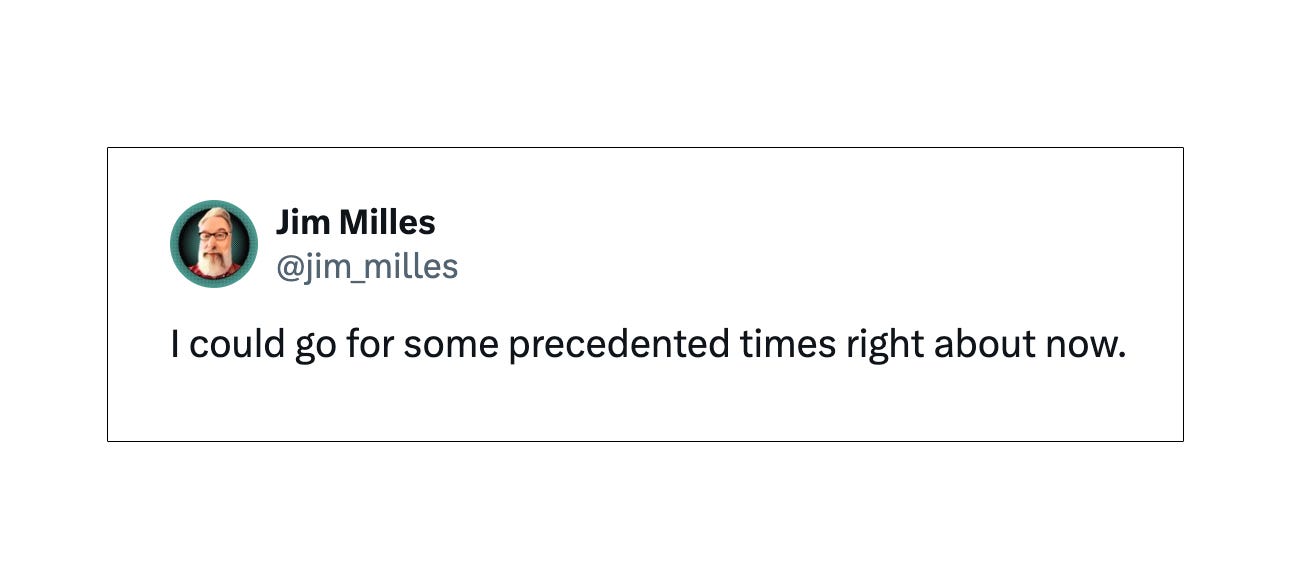
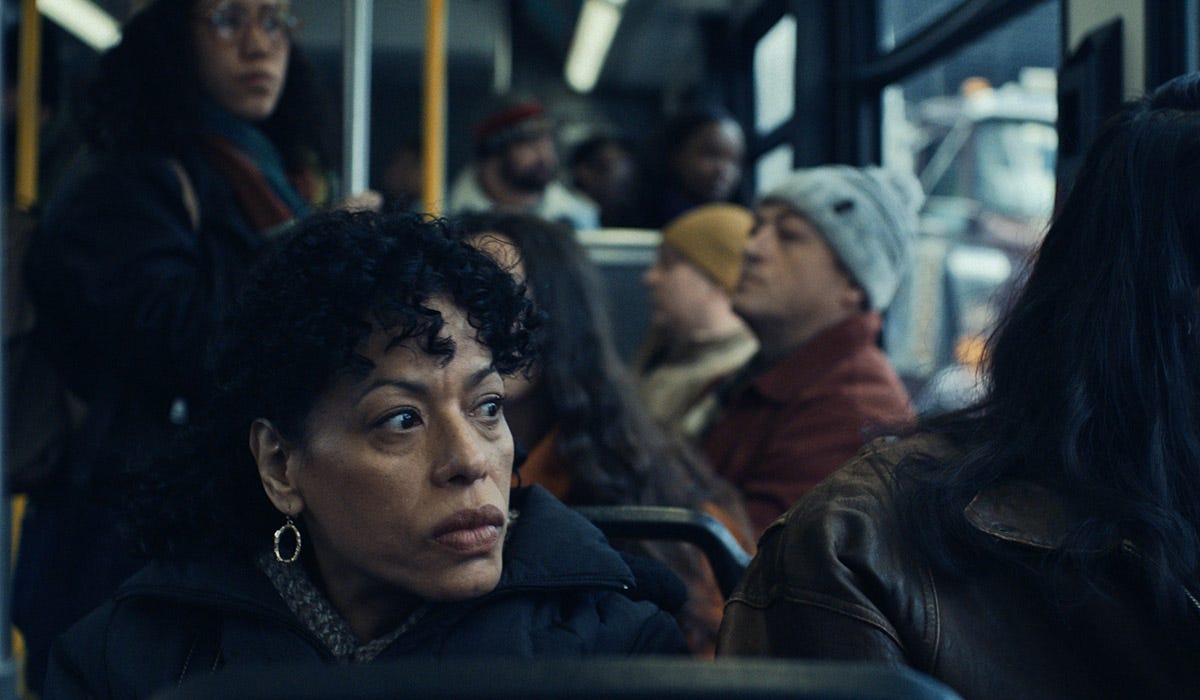
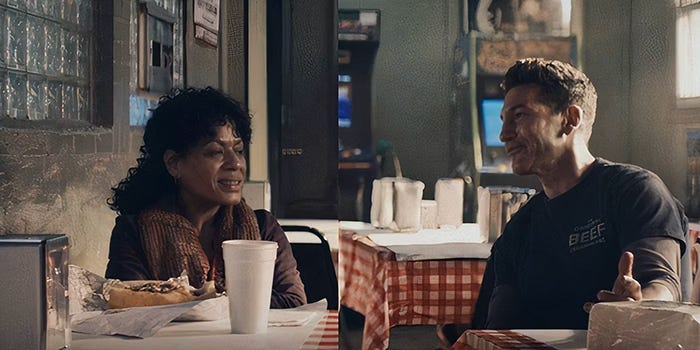
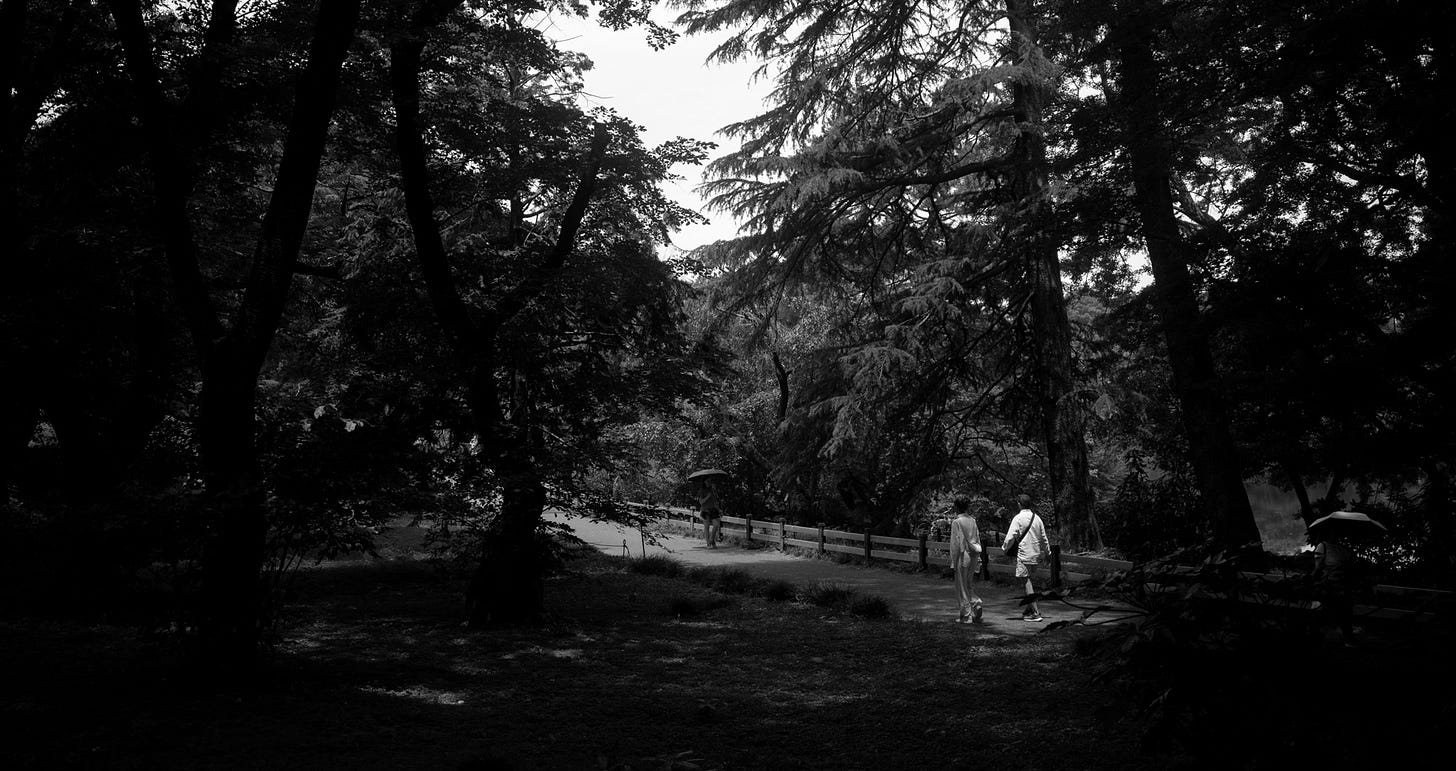

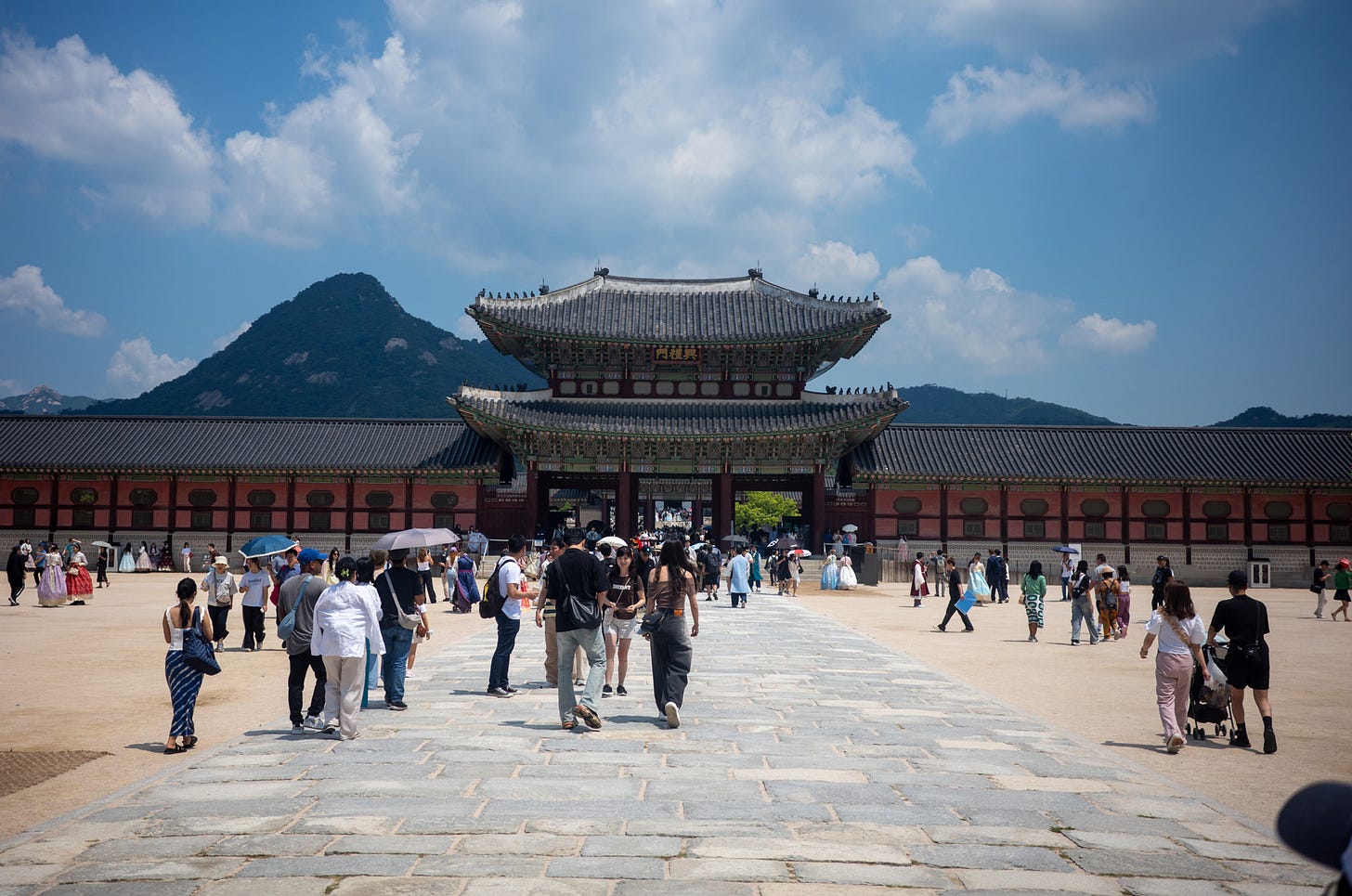
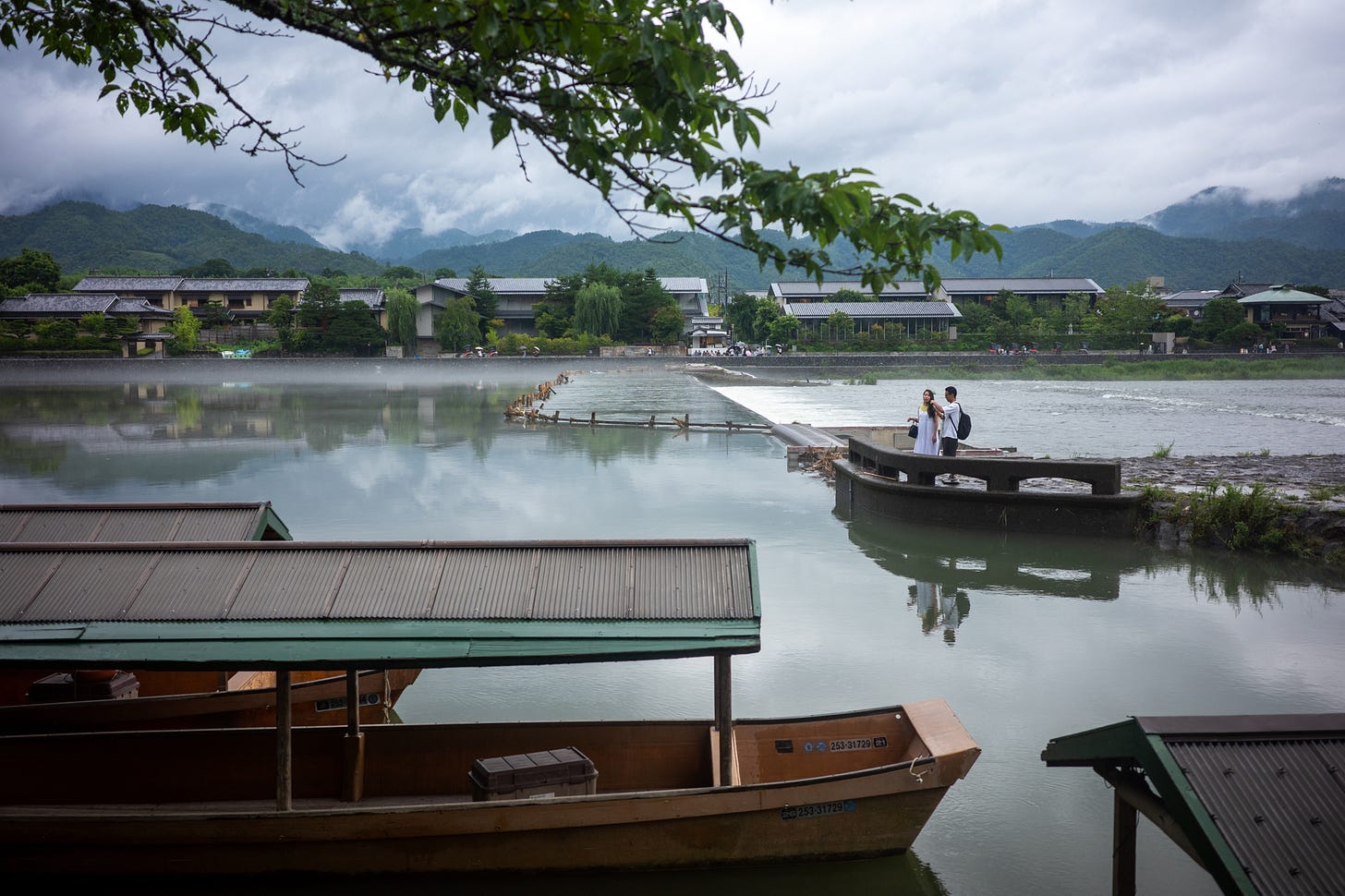
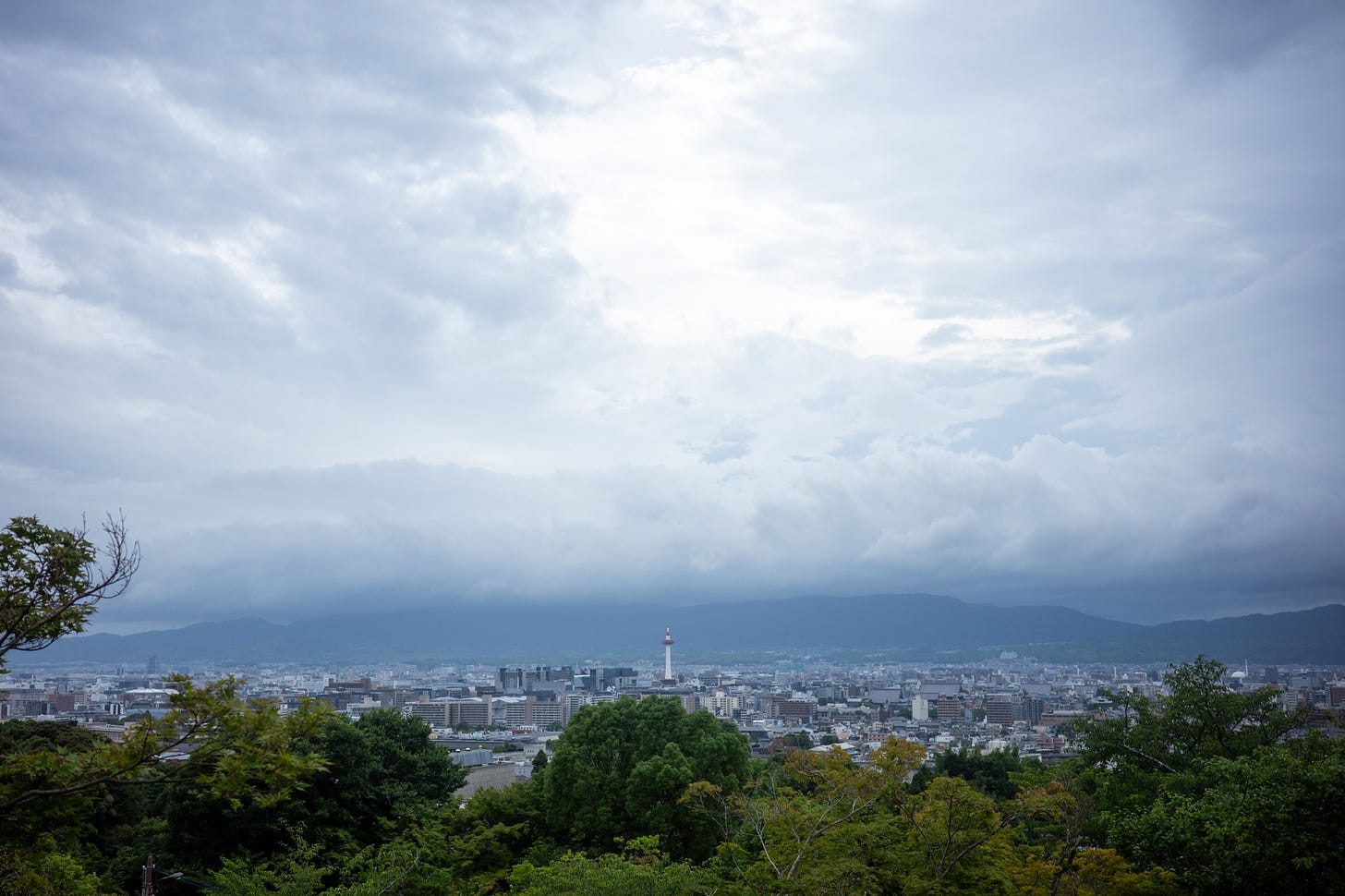
Wow, that was an incredible piece and just what I needed to read! Definitely sharing ;)
"So much of my purpose and value stems from productivity." This is something I have struggled with my entire life as well and while it's been really nice to sit back and enjoy the view, doing so was unexpectedly hard. My brain struggles with WANTING to be online, DOING something. It gave me so much anxiety. It was a practice at resting that I had to force myself to do until I actually enjoyed it.
Slowing down was the best thing I did. We are roughly the same age, and this is about the time when these things happen to us...midlife. I do think that external factors you mentioned have also pushed many of us into this life-questioning stage, perhaps earlier than expected and seems to be the sentiment among my friends too, regardless of age. But this time of life is the time when we reach the top of the mountain and need to decide where / what to climb next, knowing that the next climb will be different—we will know the importance of stopping to smell the flowers or dipping our toes in chill streams or identifying a mushroom along the way.
If not now, then when? It has to be now for us.